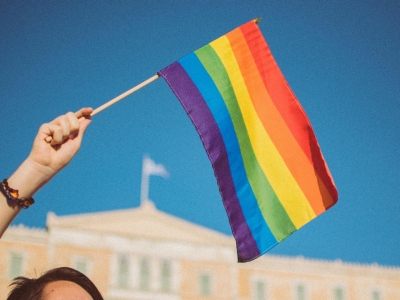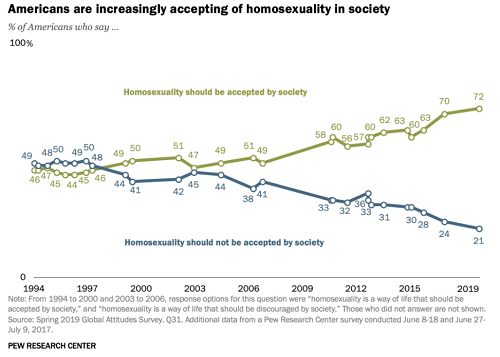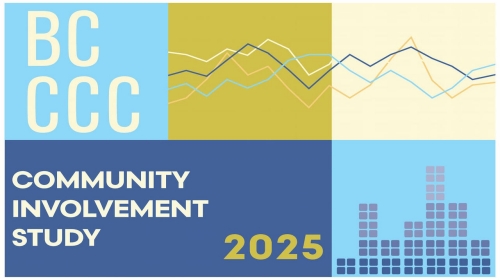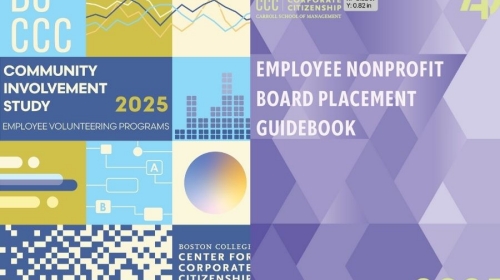WEBINAR: This webinar explores how corporate giving will be reshaped by the One Big Beautiful Bill. Hear directly from corporate citizenship leaders as they share innovative, real-world strategies that deliver impact for communities and results for business.
Supporting LGBTQ+ employees all year round

As this year’s Pride Month draws to a close, we have much to celebrate—and much work to do yet.
How your company observes and protects human rights is core to your corporate citizenship. Here in the United States, the Supreme Court ruled earlier this month that the language in the Civil Rights Act of 1964 prohibiting discrimination based on sex in the workplace extends to gay, lesbian, and transgender employees. This landmark ruling represents a huge win for LGBTQ+ employees, who can no longer be fired for reasons based on sexual orientation and/or gender identity—which was the case in many states up until the June 15 decision by SCOTUS.
The ruling should prove to be a boon for companies, providing the legal underpinnings that create the foundation for a culture of inclusion. Inclusive work environments are linked in numerous studies to better attraction and retention of top talent. Research shows that LGBTQ-inclusive policies lead to stronger financial performance—as measured by Tobin’s Q, ROA, and operating cash flow—in one study where nearly half of the 1,600 firms evaluated had implemented measures supporting their lesbian, gay, bisexual, transgender, and queer colleagues.1
What makes a firm more likely to support LGBTQ+ employees? Well, up until now, that was largely dependent on local laws and cultural norms. A 2019 study observing Human Rights Campaign’s Corporate Equality Index found that state laws play the most significant role in LGBTQ+ practice adoption in relation to CEO, who is more likely to adopt anti-discrimination policies when a state prohibits discrimination as well.2 Other local pressures, such as a regional concentration of other firms implementing such policies, were linked to the decision for a firm to adopt its own. LGBTQ-supportive policies can be even more financially beneficial in firms that require highly skilled R&D employees, which experience increased firm value and profitability after adoption.3
While societal acceptance of homosexuality across the world remains sharply divided based on region, Pew Research Center notes significant gains in acceptance among people in the United States, India, South Africa, Japan, South Korea, and Mexico since 2002. The U.S. specifically had seen a slow but steady increase in acceptance since 2000, until the federal legalization of gay marriage in June 2015 marked the beginning of a 12-point boost of social acceptance in just four years (see chart below).4

With good news in policy gains and increasing acceptance of LGBTQ+ individuals both culturally and legally, companies can build upon this momentum by offering policies and practices that support lesbian, gay, bisexual, transgender, and queer colleagues. For corporate citizenship professionals, here are some questions to consider:
From a human resource perspective: Do you explicitly include sexual orientation in your policy against discrimination? Do you have an active LGBTQ+ employee resource group as part of your larger inclusion and diversity efforts? Do you encourage the use of pronouns in your email signatures? On nametags?
From a community involvement perspective: Are you partnering with and/or giving to organizations that support LGBTQ+ issues, such as GLAAD, Human Rights Campaign, True Colors United, or The Trevor Project? Are you giving your LGBTQ+ employee resource group the opportunity to be involved in your decision making?
From a communications and marketing perspective: Has your company taken a public stand supporting the LGBTQ+ community? Did you participate in a pride logo campaign this month? Can you change any of your products to be inclusive of LGBTQ+ individuals? And if you engage in any communications around Pride—do you first have internal policies and actions to back up your words?
While Pride Month may be over, as corporate citizenship professionals we continue to push for LGBTQ-supportive workplaces across our organizations. Many of the questions above will inevitably involve working across departments and, depending on your cultural context, may require a fair amount of culture change. Keep at it! Many small actions can combine to create a movement. (For more on how to use your influence to achieve your goals, read my recent posts on networks and culture.) Companies have been leaders in LGBTQ+ policy and can continue to advance inclusion for LGBTQ+ individuals and all marginalized groups.
[1] Jiraporn, P., Potosky, D., and Lee, S.M. (2019). Corporate governance and lesbian, gay, bisexual, and transgender‐supportive human resource policies from corporate social responsibility, resource‐based, and agency perspective. Human Resource Management, 1-20. https://doi.org/10.1002/hrm.21954
[2] Roumpi, D.; Panagiotis, G.; and Delery, J.E. (2019). Adoption of LGBT‐friendly practices: The effect of institutional pressures and strategic choice. Human Resource Management Journal.
[3] Pichler, S., Blazovich, J. L., Cook, K. A., Huston, J. M., & Strawser, W. R. (2016). Do LGBT-supportive Corporate Policies Enhance Firm Performance?. Human Resource Management.
[4] Poushter, J. & Kent, N. (2020, June 25). The Global Divide on Homosexuality Persists. Pew Research Center. https://www.pewresearch.org/global/2020/06/25/global-divide-on-homosexuality-persists/
Related Content
This study explores shifting trends in employee volunteering, corporate giving, and other means of corporate community involvement.
This guidebook offers insights on placing employees in nonprofit board service roles.
This Member Meetup focused on strategies for building compelling business cases for corporate social responsibility initiatives. Two organizations shared their approaches to securing leadership buy-in and funding for CSR programs by anchoring requests in business strategy, quantifying value, and crafting persuasive narratives.
RESEARCH BRIEF - To examine whether CSR Activities affect Long-term Stock Returns, researchers studied 6971 observations of common stock of Japanese firms operating globally, along with accounting data and ownership data.
RESEARCH BRIEF - The study utilized a dataset of 28 globally listed airlines with 420 firm-year observations of ESG data over time.
Check out the latest findings and best practices from BCCCC's Community Involvement Board, comprised of corporate leaders working in corporate giving, community relations, and related roles.
Check out the latest findings and best practices from BCCCC's ESG Reporting Board, comprised of corporate leaders working in sustainability reporting.






